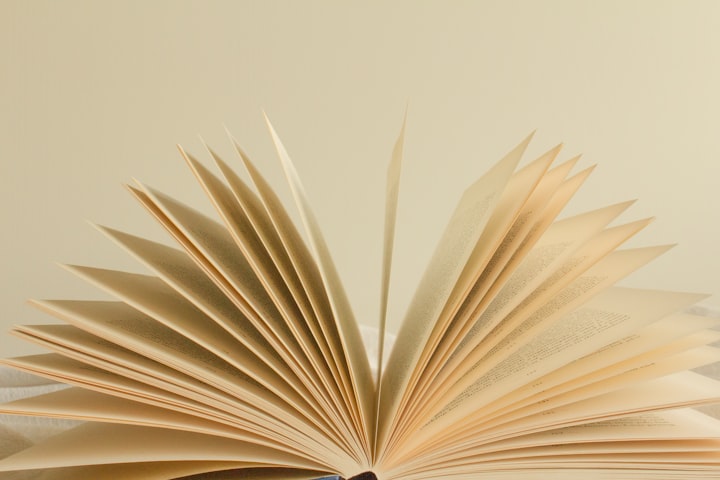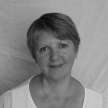The best books I read in 2022
My annual roundup of books I enjoyed, and that other writers and creators might find useful

I read 91 books in 2022.
The shortest was Claire Keegan’s Small Things Like These at 118 pages; the longest was Hanya Yanagihara’s A Little Life, at 737 pages (thank Goodreads for these pointless but fun facts).
Some of these books came out this year. Most of them didn’t. These were just my favourites, the books I found most useful, insightful or just entertaining.
(The links here take you to Amazon, by the way. If you buy there, I get a small payment. But if you prefer to support your local bookshop, more power to you!)
Non-fiction
Tiago Forte, Building A Second Brain
Every so often, I read a book that changes everything. This was the book in 2022. I’d been looking for a way to retain more of what I was reading, watching, hearing, and for organising my thoughts and ideas. That led me to Sonke Ahrens’ How To Take Smart Notes, Ryder Carroll’s The Bullet Journal Method and to various books about systems thinking and kanban boards.
They were all useful. But we’re all wired differently, and we need to find the tools that fit the way we think and work. For me, Forte’s system for knowledge management was the one that resonated. It refines smart note-taking: I’m now retaining far more of what I read, and don’t need to spend hours looking for it when I want to refer to it later.
It offers a way of gathering information from multiple sources and finding it again when I need it, even when I’ve forgotten I have it. It’s an excellent project-management tool, and it already saves me ridiculous amounts of time. Used in conjunction with the note-taking app mem.ai, it has transformed the way I read, write, organise my computer files — and my life.
I go into more detail about it here, if you’re interested.
David Kadavy, Mind Management, Not Time Management
Kadavy is a writer, the creator of the podcast Love Your Work, and an unashamed geek. Most productivity books don’t really fit the demands of creative work. This is specifically written for people who create for a living and juggle multiple projects/media. As a writer, I found it full of insight, research and personal anecdotes about the different phases of creative work and how to get into the right state of mind to do each of them well.
Oliver Burkeman, Four Thousand Weeks: Time and How To Use It
An examination of our problematic relationship with time, our obsession with productivity, and how we can make time for the things that are truly important to us. This is part self-help, part personal journey, but also an enlightening if brief history of time, and our relationship to it. If you’re struggling with time management, this might help. But it might also make you question if time is something that needs managing at all.
Bernardine Evaristo, Manifesto: On Never Giving Up
Evaristo doggedly continued writing without great acclaim until her brilliant Girl, Woman, Other won the Booker Prize in 2019 and finally introduced many of us to her novels and poems. This is both a memoir — hilarious, touching, anger-making and searingly honest — and an inspiring call to arms. She encourages all of us to find our voice and use it. Even when the world doesn’t yet seem ready to listen.
Warren Ellis, Nina Simone’s Gum; Jude Rogers, The Sound Of Being Human
Warren Ellis is a key part of Nick Cave’s band the Bad Seeds; Jude Rogers an insightful journalist whose words I’ve long admired. Both of these books are about music as the fabric of our lives, about memories woven song by song, about how a good song or a transcendental live performance makes us feel. Rogers also digs into the science, examining why music has such power.
Both stayed with me long after reading them. If music is important to you, you’ll love these.
Katy Hessel, The Story of Art Without Men
Wow! This erudite but very readable book is vast in its scope and ambition, a breathless rewrite of art history from Renaissance Italy onwards, this time focussing on the women that were missed out. There are so many artists here that I didn’t know, and I could have read a whole book about many of them. I’m still savouring it, reading it slowly, and checking out the artists as I go. A treasure trove.
Derek Jarman, Modern Nature
These edited excerpts from the diaries of the British artist and film-maker take you on a wild and moving journey. They are about the constant struggle of making his films and art; about being a gay man in the middle of the AIDS epidemic; about love, friendship and a side-serving of mischievous gossip. But most of all they are about his life on the strange, windy shingle beach of Dungeness, the garden he creates there, and the majestic, healing power of the natural world.
Mark Harris, Mike Nichols: A Life
I knew about director Nichols’ ground-breaking films, but far less about his equally important theatre work. This hefty, well-researched tome gives real insight into a flawed human making the same mistakes again and again but also consistently making art that mattered. For an insight into the Hollywood machine and the collaborations that make great theatre, this is a great place to start.
Fiction
This year, I read a lot of escapist fiction: crime novels, fantasy and SF. When I find an author I like, I tend to gorge on everything they’ve written, and my best discoveries this year were Tana French and Lauren Beukes.
An Irish-American, French writes crime, but with a dreamy lyricism that is unusual. Each of her six Dublin Murder Squad novels features a different crime, a different style, and a different lead detective. It made the whole series feel very fresh, unpredictable and satisfying.
I first came across Beukes when her novel The Shining Girls was adapted by Apple TV. The series was good (I'd watch Elizabeth Moss in pretty much anything), but the book was better. This led me to Zoo City, set in an alternate Johannesburg that owes much to Phillip Pullman and William Gibson yet has a voice and vision that is all her own. After that, I just devoured everything else she’s published so far. Well researched and beautifully written, each novel creates its own, fully formed and believable world.
Other fiction I enjoyed in 2022:
Barbara Kingsolver, Demon Copperhead
Kingsolver is, for me, one of the great contemporary novelists. I usually read her work as soon as it’s published. Yet I avoided this for months, because I knew it was set in Virginia in the middle of the opioid crisis, and I didn’t feel I had the capacity for more despair.
But when I did finally get to it, I couldn’t put it down. Kingsolver’s luminous prose is infused with affection for Appalachia and its people. There is poverty, neglect and addiction, in her tragic tale, but it also offers redemption, hope — and celebrates the power of art, and of community.
For a companion read, Patrick Radden Keefe’s brilliant Empire of Pain — The Secret History of The Sackler Dynasty lays out the shameful factual background to this story, in which legal but highly addictive painkillers were pushed onto the US population for profit. In 2022, artist Nan Goldin led a successful campaign to get the Sackler name removed from a wing of New York’s Met museum: another illustration, in case you needed it, of the power artists have when they choose to use it.
Ian McEwan, Machines Like Me
Kazuo Ishiguro’s Klara And The Sun was one of my favourite reads last year; in this 2019 novel I’d somehow missed, McEwan explores similar themes of sentience, artificial intelligence and what it means to be human in a world that is increasingly driven by machines. With his own twist on the tale, naturally.
RF Kuang, Babel
A beautifully imagined world in which language — and the meanings which get lost in translation between different languages and cultures — becomes a form of magic and energy. Kuang’s Oxford is dominated by the professors who control this power, and scholars who are fluent in obscure or difficult languages and cultures are in great demand. If you like fantasy, it’s an entertaining page-turner. But it’s also a cutting critique of empire, colonialism and the role academia and culture plays in that.
Hervé Le Tellier, The Anomaly
Beautifully translated by Adriana Hunter, this entertaining and thought-provoking French best-seller explores the idea of dopplegangers. A transatlantic plane is somehow reproduced mid-flight, and both jets land within weeks of each other, containing the exactly same passengers. How would the world react to such an anomaly? And how would you deal with meeting yourself?
Claire Keegan, Small Things Like These
It’s Christmas, 1985. A coal merchant makes a delivery to his local convent and sees something unsettling. Slowly, it forces him to reconsider his own past and to face up to some unpalatable truths in his community. This haunting novella about Ireland’s brutal Magdelene laundries only takes a couple of hours to read, but the writing packs a punch that will linger.
So those were my favourites
What were your best reads this year? Were there books that changed how you run your life, your business, your creative practice? Stories that made you laugh or cry?
Do share in the comments below!
About the Creator
Sheryl Garratt
Sheryl Garratt is a former editor of The Face and Observer magazines, and has written professionally for more than 30 years. She is also a coach working with creatives of all kinds. Find her at thecreativelife.net
Reader insights
Outstanding
Excellent work. Looking forward to reading more!
Top insights
Easy to read and follow
Well-structured & engaging content
Expert insights and opinions
Arguments were carefully researched and presented
Masterful proofreading
Zero grammar & spelling mistakes
On-point and relevant
Writing reflected the title & theme






Comments (1)
Plan to read some of them! Thanks, Sheryl, for the insightful invitation. (I gave up on "A Little Life" once, but only because of the size of the book. I know I have to go back to it because the first few pages were so encouraging.)